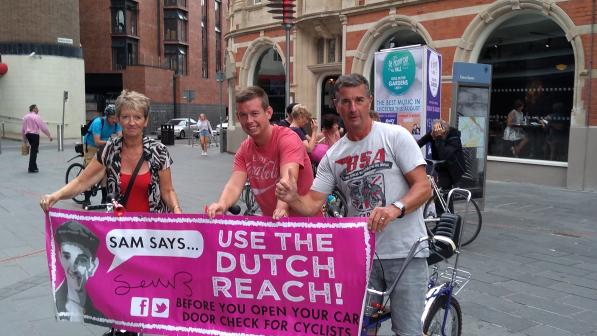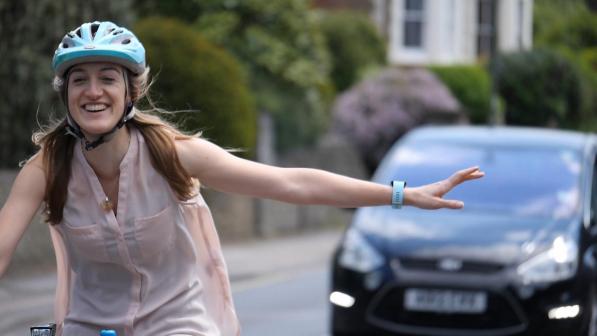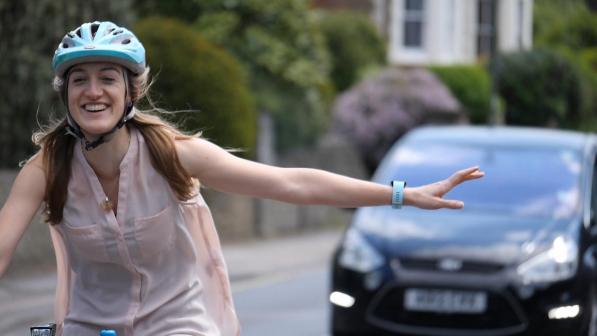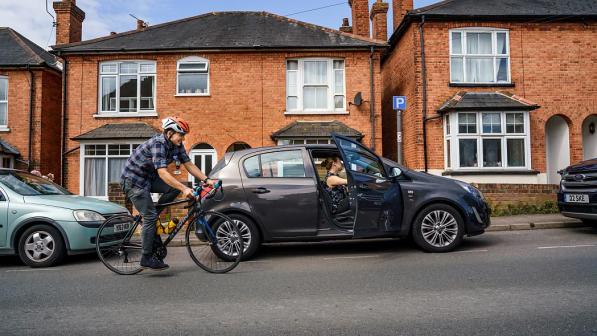Road rage Britain – will it always be this way?

Latest research from the BBC issued in tandem with its investigation into attitudes towards cycling in the UK suggests there’s a widespread dislike of people cycling on British roads.
According to this research, a third of people driving say they think those who cycle shouldn’t be on the road and should keep to cycle paths. One in four also admitted to driving too closely to cyclists.
While I’m not surprised to hear this, I am concerned to learn that a vocal minority feel this way. This antagonism has consequences.
At best, we know it’s scaring people off from cycling with perceptions of danger on our roads repeatedly being the number one reason why more don’t ride. At worst, it can lead to tragedy and avoidable loss of life.
Figures like this sometimes make cycling seem like a polarising topic. You’re either for it or you’re against with no sitting on the fence. This however is only a representative survey of people who drive…and drivers don’t make up the whole of the UK’s population.
In 2020, government figures suggest there were 36 million adults aged over 17 holding a driving licence – that’s only slightly more than half of the 67 million people living in the UK.
This means it is only a minority of a group that covers 53% of the country appearing to dislike having people cycling on the roads. Such extreme positions are not representative of the UK as a whole, even if some media reporting might give us this impression.
What such findings do sadly show is a “might is right” attitude on our roads exists. Albeit that’s for a minority, but that will still be an entrenched view based on decades of governmental policy, advertising and city and townscape design all about making it easier to travel by car at the expense of walking, cycling and public transport alternatives.
Shifting such attitudes overnight are not possible, and today’s Panorama investigation cannot be faulted for presenting a view of how many people perceive cycling. When only two per cent of journeys are made by bike, those views will naturally be skewed away from what is good for cycling and towards what is being made worse for the way they travel.
The recent Highway Code changes were meant to help shift these attitudes and make the roads safer for us all. These changes introduced in January came about after 10 years worth of campaigning by Cycling UK, and could in some ways be seen to have spurred this investigation.
The BBC found 78% of drivers support the recent changes which is encouraging, but that still means a large number need convincing. As Cycling UK’s head of campaigns points out, the BBC and Panorama’s findings should be a wake-up call to government to take action.
“The Highway Code rules were changed earlier this year to make our roads safer for the people who use them, whether cycling, on foot, or by car,” said Mr Dollimore. “This survey shows just how much more the government needs to do to explain why the changes were needed.
“If it doesn’t, there’s a risk that negative reporting of people who cycle, without any regard to road safety facts, will continue to foster the polarised attitudes toward cyclists we see from this survey, which breeds impatience, intolerance, is detrimental to road safety and costs lives.”
Despite urging from Cycling UK, to date there has only been minimal messaging from the Department for Transport’s THINK road safety awareness campaign body about the changes. Their messaging is positive – but for it to be effective and impactful there needs to be a long term, well-funded public awareness campaign otherwise we’re stuck with the tired but easy to trot out tropes of insurance and licence plates.
The priority on our roads should be reducing danger and risk, but we’re stuck in a groundhog day debate about what people think about cyclists, which has nothing to do with road safety
Duncan Dollimore, Cycling UK's head of campaigns
“The priority on our roads should be reducing danger and risk, but we’re stuck in a groundhog day debate about what people think about cyclists, which has nothing to do with road safety,” argues Mr Dollimore.
“Changing the highway code was a bold, welcome, and evidence-based move the government deserves credit for, but to realise the benefits it now needs to prioritise communication and public awareness of the changes.”
Some critics of investigations like Panorama might suggest by engaging we’re perpetuating the conflict. There’s some merit in this attitude, but ultimately if we all stick our heads in the sand and hope for the best, nothing will change.
Cycling UK would be a shell of a campaigning charity if we’d shied away from engaging with a BBC prime time investigation, especially one which is based on the recent Highway Code changes we’ve spent more than 10 years’ worth of campaigning on.
We might not like the picture Panorama presents of perceptions of cycling in the UK, but it can be changed.
Governments across the UK all realise the health, wellbeing, environmental, increasingly economical benefits cycling has. More can definitely be done, and Cycling UK and other active travel campaign groups will continue pushing for improvements in infrastructure and increased funding.
But as Panorama shows, attitudes and behaviour need changing too, for so long as there is tension on our roads, then we will always struggle to get more people cycling.




